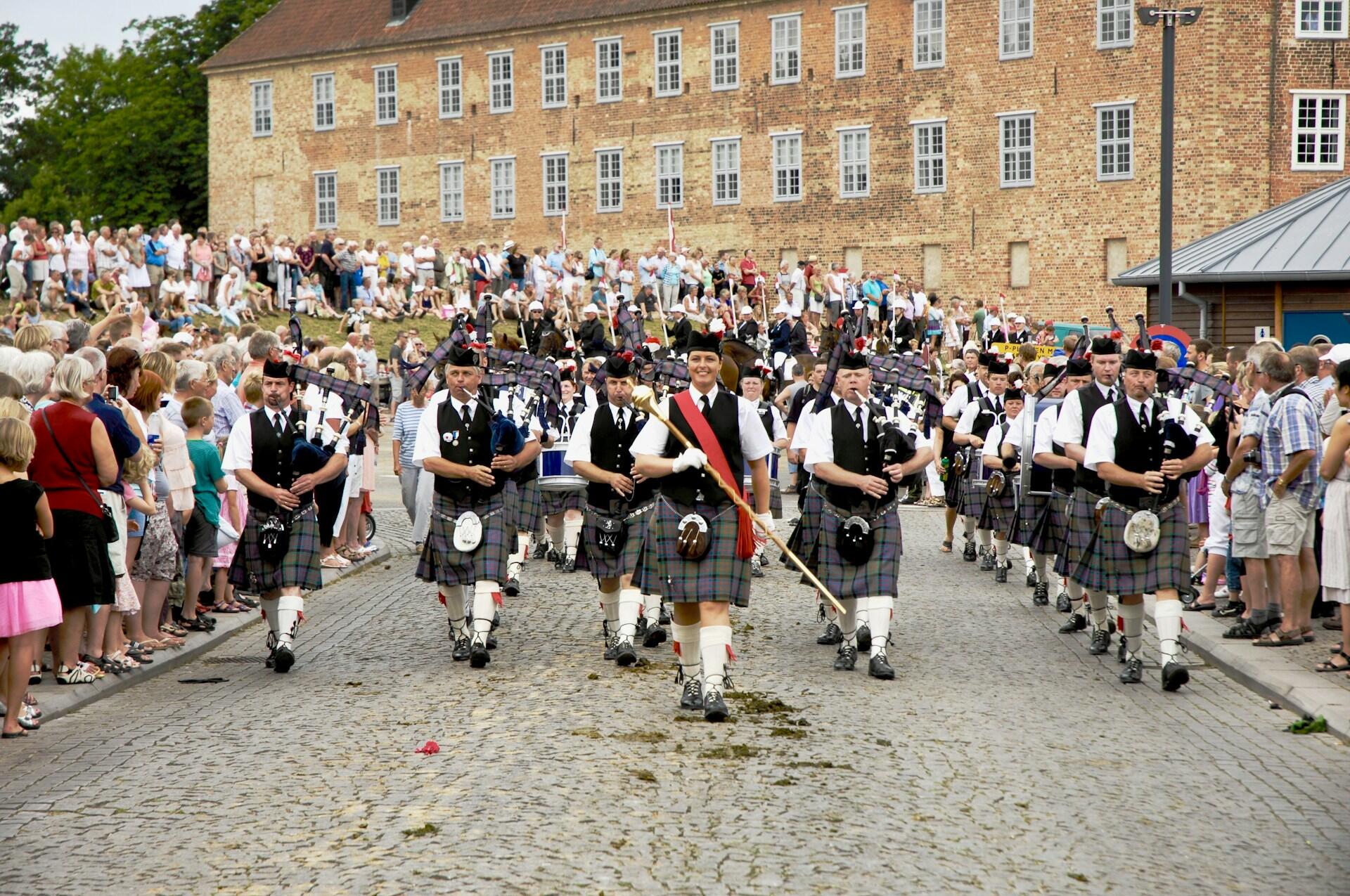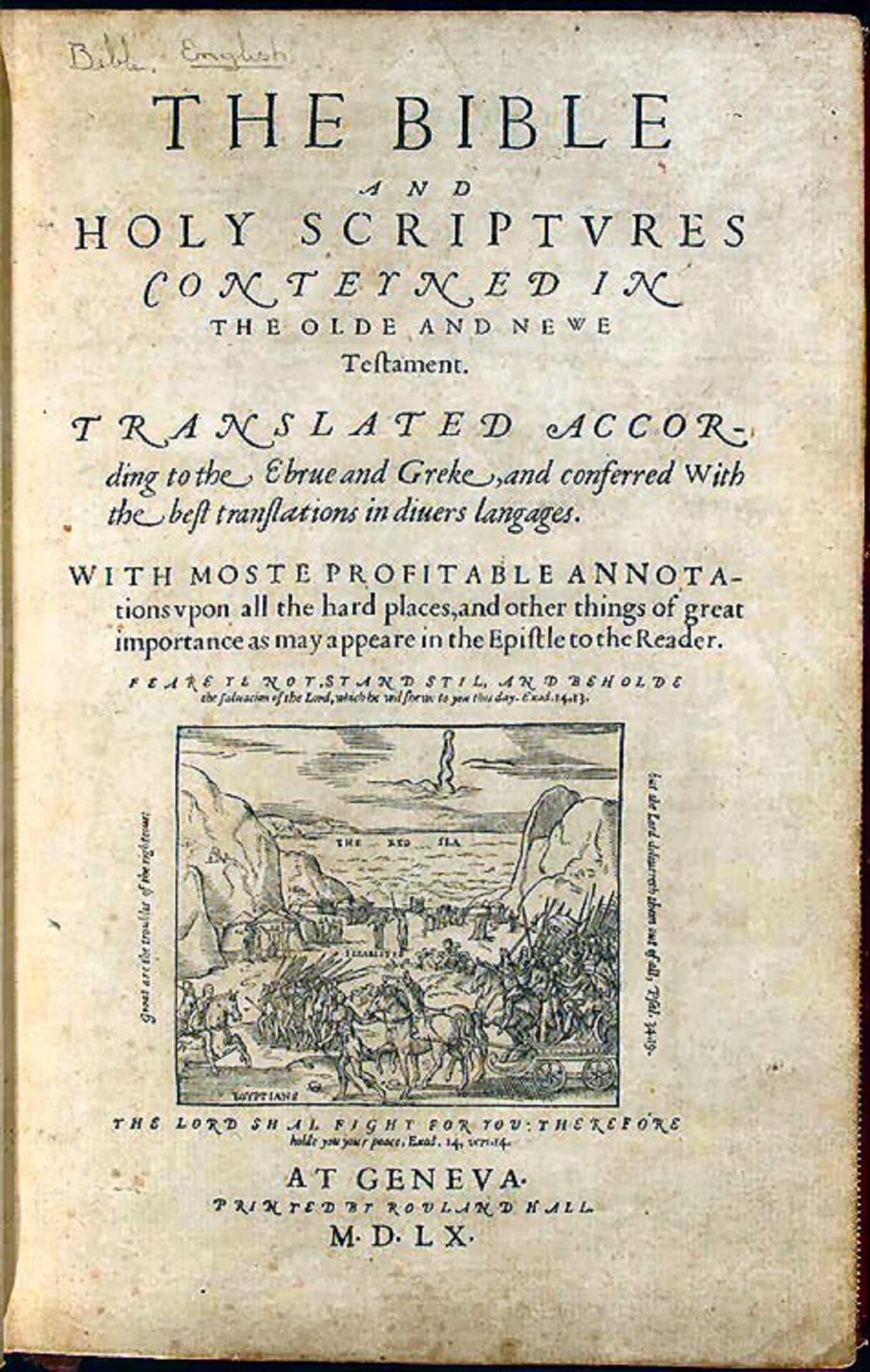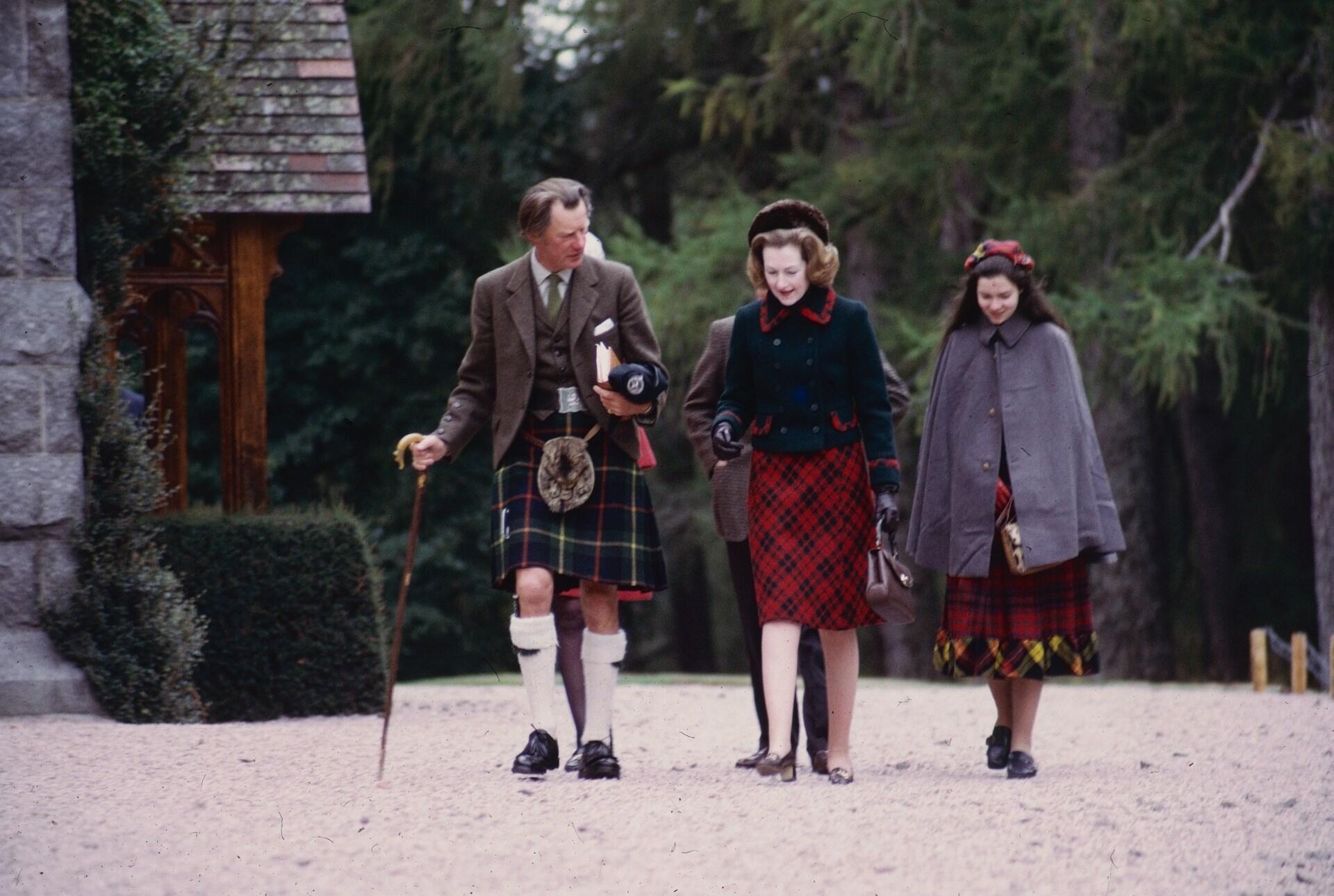Sean Connery may have been the first high-profile Scottish actor to dazzle the world with his refined accent. In fact, the United Kingdom's northernmost country has turned out many writers, singers, and other famous stars. They've made the world mad for all things Scottish: legends and lore (Nessy, the Loch Ness monster!), sublime whisky, and the mournful sound of bagpipes. How better to pay tribute to Scotland than to learn how to do a Scottish accent?
What to Know About the Scottish Accent
- This way of speaking is called Scottish Standard English (SSE).
- Scots, the official language of Scotland, is its own language. People often believe SSE and Scots are the same language.
- Scots kept its Middle English influence and added Celtic and Germanic aspects.
- Scotticisms are words, phrases, expressions and idioms used in English that come from the Scots language.

🎶 How to Speak Scottish
Few accents in the English language are as instantly recognisable as Scottish English. Of all the accents heard in Britain, it's arguably among the most delightful. However, as hinted at in our introduction, we must make clear the distinction between the three language styles people often lump into 'Scottish'.
Scots
A language all its own, with Celtic and Germanic roots
Scottish dialects
- the range of accents you hear across Scotland
- the Glasgow dialect
- the Edinburgh dialect
- the Aberdeen dialect (called Doric) and so on
Scottish English
English words and phrases spoken with a Scottish accent
We present this article with the assumption that anyone who wants to know how to speak Scottish means they want to master the distinct tones of SSE. Not that they wish to study Scots or any of the regional dialects.

Scottish English Particulars
When first hearing SSE, two facts hit you straightaway. This language has a lilting, musical quality, much as the Scouse accent from Liverpool does, but far more pronounced. Also, the way this language's speakers roll their Rs.
SSE sounds much richer than Standard English, thanks to its inclusion of Scots words. Babies are adorable all over the world, but bairns have their own brand of cute. That word for baby, 'bairn', gives us a clue for how to master this accent. It's wide open, with broad sounds and big mouth movements, as this Scottish challenger demonstrates.
@rsullivan1991 Scottish Accent Challenge! #accent #scotland #foryou ♬ Monkeys Spinning Monkeys - Kevin MacLeod & Kevin The Monkey
The final matter to put to rest is whether the Scottish accent is a burr or a brogue. Both those words describe distinct speech patterns, and they both apply to Scottish English (and Scots). This quick analysis will resolve the issue.
The Scottish burr specifically refers to the language's R sound.
A brogue describes a language pattern, particularly in Ireland.
Scottish English can also be called a brogue, though it has fewer characteristics of such.
With that, the matter's sorted. The brogue is more correct to describe the accent of Irish speakers. Saying "He speaks with a Scottish burr" means "He rolls his Rs". Now, let's find out where the irresistible Scotland accent came from (and whether the Irish had any impact on its development).
🧾 How Did the Scotland Accent Come About?
Anyone who's studied history knows that Scotland and Ireland have a tangled past. Out of it came Scotland's brand of Gaelic. Irish settlers brought their language (called Gaelge) with them when they arrived in Scotland, sometime in the 4th century.

For that reason, Irish and Scottish English share many features, including grammar, vocabulary, and brogue qualities. However, we've a much bigger story to tell. This one's about how the Scottish dialect came to England.
The people of Scotland did not care for the English Crown making constant inroads into their lands. Resistance officially came to an end with the Scottish Reformation during the 16th century (unofficially, Scots people continued to resist).
London got its first printing press in 1476, but refused/denied Scotland access to it (or to a printer) for about 30 years.
During that time, England busied itself printing and distributing religious books, particularly the Geneva Bible. In English, of course; why accommodate Scottish populations? Through these measures, the English language infiltrated Scottish dialects.
King James VI of Scotland ascended to the English throne in 1603.
The newly crowned King James I moved his court to England, as that country was bigger and had more riches (and better facilities). His court and other hangers-on got a taste of English life and decided they liked it fine.
[This event led to] the sudden and total eclipse of Scots as a literary language.
J. Derrick McClure, Aberdeen University
That pretty much tells the tale of how the Scots language became 'subordinate' to English. Later, the Acts of Union became law in 1707, which formalised English as the only language in both parliaments.
However, for courts and other legal processes, schools, churches and other social aspects, the languages remained separate. This process echoes happenings in Wales, underscoring why people there are so protective of the Welsh language and accent.

👩🎓 Sounds that Mark the Scottish Dialect
Besides broad vowel sounds, SSE's /r/ is its most distinctive feature. Depending on where the SSE speaker is from - Highlands or Lowlands, it can be more pronounced. Often, the alveolar trill - the actual rolling of the /r/ is more pronounced for dramatic effect in television shows and radio.
Typically, an alveolar flap is more common. It involves quickly tapping the tip of the tongue to the roof of the mouth, just behind the front teeth. This native Scottish speaker demonstrates the tap while treating us to a few iconic Scottish phrases and their meanings.
Because of the emphasis on /r/, vowels that come before it get special treatment. Note how our Scottish speaker says 'First': the /i/ comes out as the 'ea'-sound in 'fear'. Other vowels, particularly 'e' and 'u' receive the same treatment.
People who speak Mancunian, the accent of Manchester, mark particular vowels the same way, and for the same reason. Mancunians also 'tap' their 'r's, so they have to emphasise their vowels. Now, on with more Scottish /r/ particularities.
For words like 'girl', 'world', and 'unfurl', native Scottish speakers will roll the R, rather than tap it. That means the vowel preceding /r/ will be more emphasised.
The same is true for any word containing the r-m combination: 'arm', 'marm', and 'barmy' will all feature an exaggerated 'a' and a trilled /r/.
The word 'loch' contains one of SSE's more remarkable sounds. The 'ch' combination, marked as ⟨χ⟩ in the International Phonetic Alphabet (IPA), sounds like one is trying to clear their throat. Our lovely speaker in the tutorial clip above demonstrates that sound well.
Other Remarkable SSE Features
- The past-tense verb ending '-ed' is typically flattened to a 't': 'ended' becomes 'endit', 'carried' is 'carrit', and 'wanted' is 'wantit'.
- The future progressive tense is used to make assumptions: "You'll be coming for the weekend?"
- Progressive verb forms see frequent use: "I need to wash my hair" becomes "my hair is needing washed". This construction favours the passive voice, putting the object in the subject's place.
- The word 'how' is often used in place of 'why': "How no?" translates to "Why not?" (note the dropped 't').
- Prepositions: doubling them is common, especially 'off of' ("Get that off of your head!"). 'On' serves in the place of 'for' ("Hurry, she's waiting on you!" instead of 'waiting for you').
- The '-ie' ending is added to many nouns to mark smallness and/or affection: 'bairnie' is a much-loved baby and 'shoppie' is a small shop. "I'll just have a sweetie to keep me till dinner" suggests a small sweet, not a love interest.
Finally, we have definite article usage, with 'the' preceding conditions that often do not need an article, let alone a definite article. "I've got the fever", "She's at the church", or, as Forrest Gump said: "She had got the cancer".
😍 How to Speak Scottish
Scottish English borrows words from its Gaelic roots, adds a dash of Scots vocabulary, and gives standard English words different meanings. All of that is on top of its distinctive sounds, grammar rules and common practices, like finding novel uses for little-used verb tenses.
Still, it's not impossible to learn how to speak SSE, accent and all. Once you've mastered this accent's tricky /r/ sounds, you only need a few words and phrases to practise with.
| 📖Word | 🎯What it means | 🤔 |
|---|---|---|
| to stay or bide | to live at | She bides outside Edinburgh. He stays at the blue house down the road. |
| to ken | to know | Scotsmen don't all wear kilts, ye ken! |
| to get [somebody] | to go with | I'm off to get me mum to the hospital. Aye, let me get him down the road and then, we'll have a wee chat. |
| the messages | shopping | She's off for the messages. He carrit the messages into the hus. |
| being ages with someone | being the same age | He's ages with you, laddie. Don't let him give you laldie! Your wee lass is ages with mine! |
| give one laldie | a scolding or punishment, a beating | Me da gave me laldie over being late home. I'll nae drink with him again for giving me laldie. I'm wanting to gie him laldie after what he said about my missus. |
| give it laldie | do something vigorously | Gie it laldie, lad, else it'll ne'er be clean! She gave it laldie, high-stepping through the whole dance. |
| to be after | describing a completed action | They're after going to school. (they've gone to school). She's after having tea. (She's had her tea) |
| dinna fash yersel | don't get upset | Dinna fash yersel, lassie. |
| aye, right! | definitely not | Aye right, we ken. Quit yer havering! |
| to haver | to talk nonsense | Quit yer haverin, lad! Bairns are always havering. |
| to blether | to gossip | I'm needing to blether, this story's just too good! Those lassies are allus blethering about one lad or the other. |
| black affronted | to be ashamed or embarrassed; to be offended | The wee lass was black affronted about her blethering. I'm black affronted after what he said to me! |
| droukit | soaked from the rain | He's fair droukit after that walk! |
| caw canny | take it easy, don't overdo it | Caw canny, lad! Yer already fair wabbit! |
| (fair) wabbit | exhausted, weary | I canna go, I'm fair wabbit after the day I've had! |
Some of these are likely familiar to you, like 'bonnie' (Bonnie Prince Charlie?), 'kirk' and 'bairn', which we talked about earlier. Likewise, 'lass/lassie' and 'lad/laddie' have gone mainstream; even those who speak in London's distinctive tones say them, on occasion.
By far, the most challenging aspect of mastering the Scottish accent is its /r/ sound. Particularly as British English generally erases any trace of 'R', no matter where in the word it appears. Make learning those trills and taps your mission, and you'll be well on your way to sounding Scottish!
Summarise with AI:















